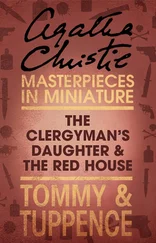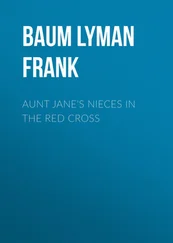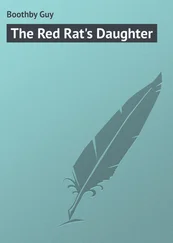Prime Minister, my father announces in his gruff voice nonetheless warmed by a certain strategic pride in showing off his domestic qualities for his visitor, this is my only daughter, Svetlana, the youngest and bossiest of my children. Quite bright and opinionated she is. Always telling me what to do and not do with myself. And most of the time I listen—isn’t that so, Svetlana? Now give greetings to Mr. Winston Churchill, Prime Minister of our ally Great Britain.
Mr. Winston Churchill smiles at my father, his manner at once perfectly jolly and perfectly grim. Allow me to say, Mr. Stalin, that you are a most fortunate man to have such a charming, sharp-minded adviser at your constant disposal. And redheaded. My dear— he turns to me, gesturing with the glowing eye-tip of his cigar about his hairless round skull— I was a redhead too, you know. But look what the war has done to me .
Moments later, I am ushered out of the room.
It is years hence, of course, that I come to understand the reason for Churchill’s unexpected visit to Kuntsevo that night, and why my father might have wanted to present me to him. The Prime Minister had come in person to discuss strategy, but really to deliver the unwelcome news that the Allies were delaying still further any attempt to establish a second front in the war in Western Europe—meaning there would be no immediate relief for the USSR in our bloody struggle against Hitler in the Eastern campaign, which was on the verge of annihilating our country. Even now, I confess I am rather moved by the thought that my father could have been desperate enough to imagine that trotting out his redheaded Housekeeper (who in truth was no longer that girl) before Democracy’s great aristocratic orator might have been enough to tilt history’s compass in his favor. In any event, I was quickly dismissed from the room, and then from Kuntsevo altogether, and many more thousands, indeed millions, of human beings would go on to lose their lives in the carnage presided the world over by men who smoked cigars.
—
Three months later, I again find myself at Kuntsevo, this time at a party thrown by Vasily. The evening has grown late. Wearing my first real dressmaker’s dress, low-heeled shoes, a garnet brooch of my mother’s, I am being guided in the fox-trot by Alexsei Kapler, a handsome and well-known Jewish filmmaker more than twice my age, with a reputation for enjoying the company of beautiful women wherever he goes.
He is just back from filming guerrilla fighters in Belorussia, he tells me. He adds that he keeps an unheated room in the Moscow Savoy, where he greets friends and colleagues with black-market coffee. Do I like coffee? In a few days, he will be leaving for Stalingrad. Who can say how long he will be gone?
My close friends call me Lyusia, he says.
Last record! someone shouts down the room—it is Vasily, drunk as an entire brigade. (Where is my father? On this night at least, I have no memory of him.) I can feel Lyusia’s warm hand in the small of my back, our feet somehow moving in unison.
Tell me, he murmurs in my ear, his troubled, knowing eyes on mine. Why do you look so unhappy?
And because I am already a little in love with him, and because no one else has thought to ask, I answer his question.
Tonight, I tell him, the eighth of November, is the tenth anniversary of my mother’s death.
—
That night I hardly sleep for thinking about him. Waking me in the morning, my nurse calls me silly, but she is tender as she makes me breakfast; for with her animal-hearted love she understands that something important has happened to me, and that suffering and grief are the only possible end to it.
—
There has been no promise, of course, no plans made. To attempt such a thing with the vozhd’ s daughter would be an act of unthinkable recklessness.
Yet next afternoon, as I emerge through the gates of my school into the November gloom, he is the first person I see, hunched in a doorway, smoke from his ration cigarette blurring the sharp lines of his face. Waiting for me. His slow smile causes my breath to freeze in my throat.
Then he notices Klimov, my official shadow, a few meters behind me, and his smile deserts him. A stocky, middle-aged fellow with a round, pushed-in face, Klimov regards me with an attitude of resolute apology. But he will not be deterred. His life depends on this, I have no doubt. Several times a day I catch him writing down his observations of my actions, acquaintances, conversations in a small leather notebook he keeps in his breast pocket.
Lyusia strides up and offers him a cigarette. Klimov appears momentarily disarmed—there is nothing about this sort of scenario in his field manual. But when the Jewish filmmaker flourishes his steel lighter, the KGB flunky sticks the cigarette between his lips, bends over the flame.
Klimov trails us to Gnezdnikovsky Street, where for six hours he waits outside the private screening room of the Ministry of Cinematography, while I am shown Queen Christina with Greta Garbo; then Young Mr. Lincoln with Henry Fonda; and finally, best of all, Walt Disney’s Snow White and the Seven Dwarfs .
I still do not know how Lyusia got hold of those films, or how on this day he is privileged to use the theater, but it doesn’t matter. There is nowhere else we can go. For these few blissful hours we are able to sit together in the darkness, alone. Ours the only eyes in the room, the only ears. At the start of the second reel, he takes my hand. I lean my head against his shoulder. His heavy tweed suit, wool cardigan sweater, his thick black hair—everything he wears or touches smells of smoke. By the end of the day, I smell of it too, it has infused me. His smoke. Not the smoke of war, incinerated villages, rationed cigarettes. But the smoke of burned love letters, shared secrets. The smoke of promise.
Klimov smells it too. I see him sniffing like a confused dog as we emerge from the theater. But he cannot identify what Lyusia and I are now, has not recorded us with his own eyes, has no Party-approved definition of us to put in his notebook for the vozhd . And so he can do nothing but stand there looking fidgety and downtrodden as my lover and I bid each other a polite good night on Gnezdnikovsky Street. Snow has begun to fall, large flakes sifting down through vessels of dim yellow light formed by the streetlamps, endlessly filling their emptiness.
Poor Klimov! He has not yet grasped the greatest truth about the vozhd, which is that smoke is the thing he fears most. The smoke of fires not his own.
—
And now it’s March the third, 1943. Just another morning—or so I believe, rushing around the Kremlin apartment where I live with my nurse, late for school, searching for a misplaced sweater. I enter the dining room… and there to my surprise (he is always at Kuntsevo at this hour) stands my father. He turns on me, his face inflamed by months of pent-up rage but his voice like a cold steel blade:
You think your boyfriend wants you because you’re pretty? Are you fucking joking? He’s got twenty other whores besides you, this I know for a fact.
Only now do I notice the sea of confetti spilled over the dining table and the floor around my father’s boots. And realize, as in a nightmare, that he has found and torn to shreds every last letter and photograph that Lyusia ever gave me.
Papa, where did you find those? What have you done?
Think you have secrets from me? he bellows, making the room quake . From me? Are you out of your fucking mind? Do you know who I am?
Читать дальше












